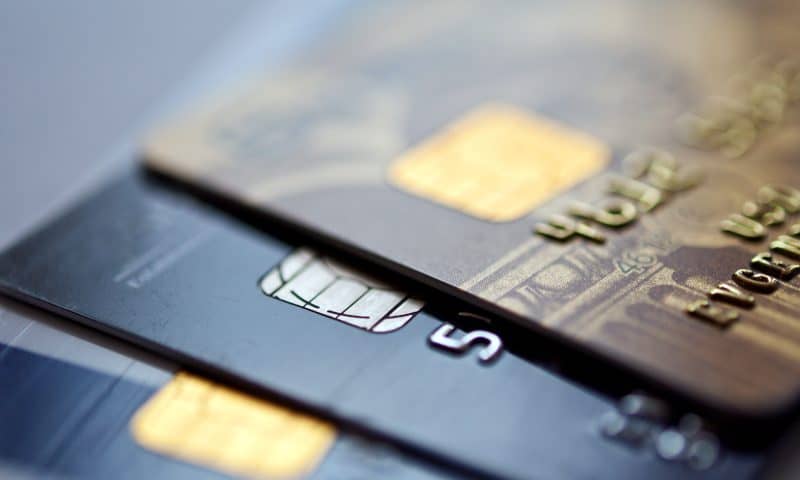This website uses cookies so that we can provide you with the best user experience possible. Cookie information is stored in your browser and performs functions such as recognising you when you return to our website and helping our team to understand which sections of the website you find most interesting and useful.

Be Aware Paypal and Square May Freeze Your Business Funds
December 30, 2020
Questions To Ask When Choosing A Merchant Account Provider
February 16, 2021They say there are two certainties in life, neither of which is a pleasant one to think about. If you run a small business, there is a third certainty of life that diminishes the bottom line.
It is called a credit card chargeback.
Credit card chargebacks represent a potentially costly part of running a small business. No, you cannot convert your business to strictly cash transactions because let’s face it, a vast majority of consumers purchase products and services by using plastic.
Some industries have unique sets of challenges; for example, merchant accounts for dating apps may face higher chargeback frequencies that put them in the high risk merchant account category. However, you can protect your apps and software business, against money-draining credit card chargebacks.
Overview of Credit Card Chargebacks
If you looked at credit card chargebacks as a mathematical function, you could say they are a function of customer disputes. A customer sees a charge on a credit card bill and decides to dispute the charge. The story does not end here, as the credit card company that issued the card has to determine whether the chargeback request is valid. If the credit card company determines a chargeback claim is valid, a merchant can lose anywhere from $15 to $100 for the chargeback.
That’s a staggering amount of money for a small apps and software business that gets hit with dozens of credit card chargebacks.
Customer disputes happen for a wide variety of reasons. Let’s look at a few of the most common types of credit card chargeback claims made by customers of small businesses.
- Incorrectly billed
- Do not recognize the charge put on a credit card statement
- Not satisfied with the quality of a product or a service
- Did not receive the item ordered
The last type of credit card chargeback is a common one for apps and software businesses that complete a large chunk of their transactions online. Customers order and download an app or a software program in real time, only to be dissatisfied with what they downloaded.
As the owner of a small apps and software business, the question is not if you can expect to deal with credit chargebacks. Instead, the question is how do you limit the number of chargebacks that can become a financial albatross on your bottom line.
Tips to Minimize Credit Card Chargebacks for Small Businesses
According to Rick Lynch, who is the senior vice president of business development for Verifi Inc, minimizing credit card chargebacks requires small business owners to pay close attention to monthly bank statements. Bottom of Form“It’s something you have to stay proactive on,” says Lynch. He also recommended that small business owners should review their strategies for preventing credit card chargebacks every six months.
Here are some suggestions for your apps and software business to minimize credit card chargebacks
Follow the Protocols Established by the Credit Card Processor
Credit card processing companies develop their own protocols for accepting credit card payments. One common protocol is for small businesses to train their employee to check for the expiration date on a card, before entering the security code printed on the front or back of a card.
Apps and software businesses might have to follow unique credit card processing protocols that involve transactions made online or over a phone. To get approved for a credit card transaction done outside of an app and software brick and mortar business, the credit card processing company might require additional information that can include a customer’s IP address.
Getting on the good side of a credit card processing company starts by following the protocols established by the company for credit card transactions
Require Customers to Commit to a Contract
Skokie, Illinois entrepreneur Glenn Davis says he has never lost a chargeback claim for his party services company. The key to not taking a financial hit because of credit card chargebacks is to require customers to sign a contract that lists the services his company provides. Davis allows customers the flexibility to send a signed contract by fax or email, as well as electronically sign a contract with a fingerprint via a Smartphone app.
“The card isn’t present, but the contract says that so-and-so authorizes us to bill their card in this amount,” David said in an interview. “Once we had to address a dispute with American Express, who defends their customers like no one else. We submitted the contract and, within 24 hours, they found in our favor.”
Deliver Prompt Customer Service
Many credit card processors deliver chargeback notifications that give small businesses plenty of time to contest disputed charges. Owners of app and software businesses should take advantage of the notifications to address chargeback requests promptly. Responding to chargeback requests quickly matters, as does handling a credit card transaction issue with flexible and personable customer service skills. Your customers want a chargeback dispute resolved within the same cycle of receiving a credit card statement that includes the transaction in question.
Train Your Employees
As the owner of an apps and software business, you have too many plates spinning at the same time to handle every customer transaction. In fact, your employees handle a vast majority of your customer transaction. What good does it do if you do not share your wisdom when it comes to credit card chargebacks. Train your employee to know the types of credit card transactions that lead to the most chargebacks. One of the most important training sessions should focus on how your employees can prevent credit card fraud.
Finally, fight credit card chargebacks when it makes the most financial sense. Every credit card chargeback not only causes you to lose a sale, but it also costs you a fee. You cannot expect to win every chargeback battle with an established credit card processing company.
However, you can win the chargeback battles that you have the upper hand in winning.





